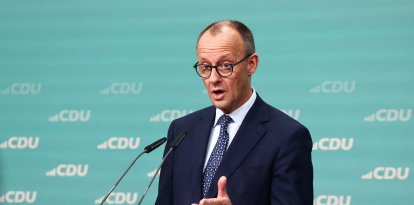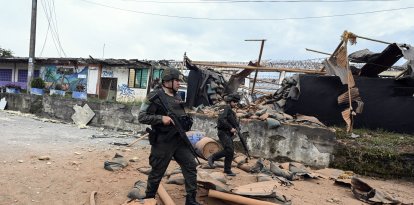Haiti's Transitional Council ousts prime minister, deepens migration crisis
Armed gangs continue to run rampant in the Caribbean country as political instability deepens. The situation has deteriorated in recent days despite the intervention of the United Nations and forces sent by Kenya to help the Haitian police.

Garry Conille, ousted Haitian prime minister
The Transitional Presidential Council in Haiti ousted Prime Minister Garry Conille just six months after assigning him the post.
The nine-member presidential body was formed in April following the resignation of then-Prime Minister Ariel Henry under pressure from violent gangs. It aims to bring political stability to a country taken over by armed groups and pave the way for the first election since 2016.
The powers of the council, formed by an alliance between political parties and civilians, were not clearly established, so analysts warn that it is not clear that removing the prime minister falls under the scope of its duties. In fact, as a document obtained by AFP shows, Conille himself tried to stop his own dismissal on the grounds that it was "clearly tainted with illegality."
The decision comes after weeks of internal squabbling. Businessman Alix Didier Fils-Aimé was appointed the new prime minister.
The turnaround of the transitional council is a new blow of instability for a country facing a humanitarian crisis. According to the U.N., more than 700,000 people had to flee their homes. The migratory pressure in the region is expected to increase.
Authorities welcomed a foreign mission supported by the United Nations and Kenyan troops to reinforce the efforts of the National Police. Months after their landing on the island, they have not been able to reverse the spiral of violence perpetrated by gang members.
RECOMMENDATION






















